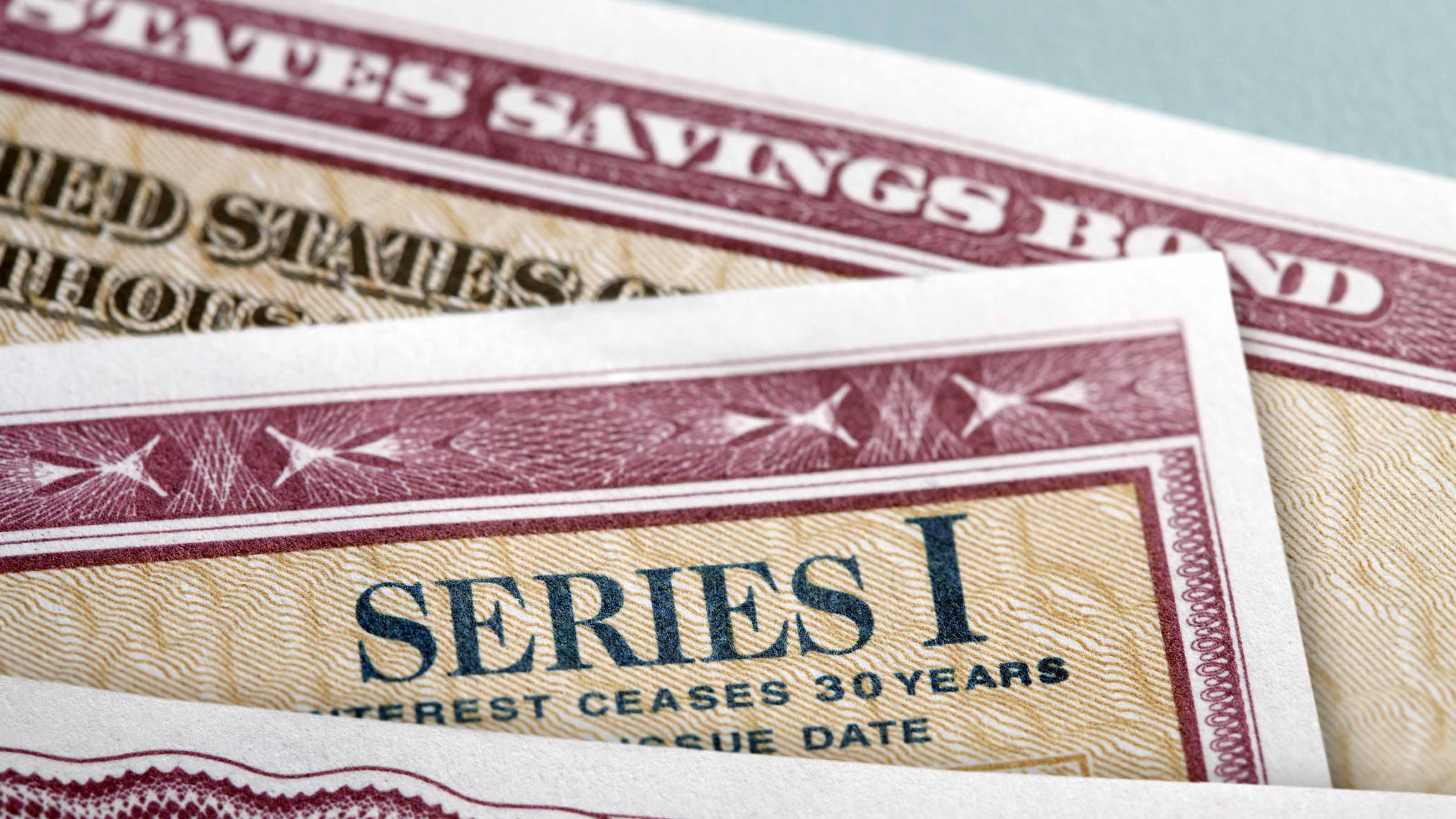The Sweet 23: States Where Twix and Kit Kat Avoid the ‘Candy Tax’
There’s something spooky this Halloween, and it’s not just the ghouls. Find out if your state’s sales tax takes a bite out of sweet savings.


With the price of cocoa reportedly rising more than 130% in recent years, consumers may be seeking some chocolate relief. And for good reason, too: 90 million pounds of Halloween chocolate is sold every spooky season, making this the most popular time to purchase cocoa.
However, this delectable treat remains taxable in many states. And in some, chocolate is even considered a “sin.” If you’re chocolate-phobic, look away now.
Is there a candy tax in the US?
Before we get into rankings, we first need to look at how tax law views chocolate. More broadly, “candy.”
From just $107.88 $24.99 for Kiplinger Personal Finance
Become a smarter, better informed investor. Subscribe from just $107.88 $24.99, plus get up to 4 Special Issues

Sign up for Kiplinger’s Free Newsletters
Profit and prosper with the best of expert advice on investing, taxes, retirement, personal finance and more - straight to your e-mail.
Profit and prosper with the best of expert advice - straight to your e-mail.
According to the Tax Foundation, states define candy tax in generally one of three ways:
- “Grocery” tax, for states that tax groceries
- “Candy” tax (either exempt from the state’s grocery tax exemption or candy is levied a special “sin” tax)
- States that don’t tax groceries or candy, so the definition isn’t as particular
The tax is straightforward in the states that see it as a grocery item: candy is taxed at the same rate as a carton of eggs or milk. But states that classify chocolate as “candy” differ. Those states may either exempt candy from the grocery tax exemption or add tax to candy.
Candy definition: Difference between candy and chocolate
The Streamlined Sales and Use Tax Agreement (SST) governs the definition of candy for tax purposes in 23 states.
The law defines candy, and by extension chocolate, as “a preparation of sugar, honey, or other natural or artificial sweeteners in combination with chocolate, fruits, nuts, or other ingredients or flavorings in the form of bars, drops, or pieces.”
What is missing from that list? Flour. More specifically, wheat flour. If your candy has wheat flour in it, it’s not candy according to the SST.
Chocolate without flour is tax-exempt in some states.
For example, Minnesota doesn’t tax groceries. However, candy is taxable. However since a candy bar like Twix has flour, it is not considered candy. So, it may be sales tax-free.
This could be interesting from an economic perspective. Because Twix may be cheaper under Minnesota law, it may be in higher demand than its competitor, Reese’s Peanut Butter Cups, simply because the first has flour and the second does not. Perhaps this is why Twix ranked as Minnesota’s favorite candy in a study by the World Population Review.
But whether a state considers floured chocolate a candy depends upon the state following SST.
What states follow SST?
Below is a list of all 23 states that abide by the SST. Thus, they follow the definition that chocolate does not include flour, so items like Twix could generally be state-sales tax-free:
- Arkansas, Georgia, Indiana
- Iowa, Kansas, Kentucky
- Michigan, Minnesota, Nebraska
- Nevada, New Jersey, North Carolina
- North Dakota, Ohio, Oklahoma,
- Rhode Island, South Dakota, Utah
- Vermont, Washington, West Virginia
- Wisconsin and Wyoming
What candy contains flour?
You may be wondering what other chocolate has flour so you can enjoy some sweet state sales tax savings. Look no further.
Below are a few examples of floured chocolates that may be state sales tax-free in the SST states:
- Hershey’s Cookies ‘n’ Creme bars
- Whoppers (malted milk balls)
- “Crisped rice” candies, like Nestle Crunch
- Chocolate-covered wafers like Kit Kats
A quick note for bakers: Unsweetened cocoa products like baking chocolate are generally not considered “candy” because they don’t contain sugar. However, sweetened products like M&M’s Baking Bits, are candy, so they may be taxable. It all depends if the product in question meets the definition laid out by the SST and if your state follows SST.

Best states to buy chocolate tax-free in 2025
The best states to buy chocolate may not necessarily be those who follow SST.
States that don’t tax groceries and don’t levy an additional tax on candy could be the better option. They are favorable because they have no state tax on chocolate, which means most chocolate — regardless of flour or sugar level — is typically state sales tax-free.
Per the Tax Foundation and individual state tax websites, these states do not follow SST and generally do not tax chocolate as long as it's sold for "off-premise" consumption (more on that below):
- Arizona
- California
- Louisiana
- Massachusetts
- Pennsylvania*
- South Carolina
*Pennsylvania, home to Hershey’s theme park, generally sells chocolate state sales tax-free, though the park may still charge tax through its eating establishments.
However, you may save more on taxes there than the Mars Wrigley factory tour in New Jersey or the M&M location in New York City, where chocolate is almost always taxable.
(But be sure to check your municipality or jurisdiction to see if local sales taxes still apply to any of the above states.)
Why is candy only sometimes tax-exempt?
Unfortunately, the chocolate you buy may still be taxable, even if purchased within a candy tax-free state. This is not only due to local taxes but also depends on where you consume your candy. You can eat it "on the premise" of purchase, or "off the premise" somewhere else.
For example, if you bought chocolate through a movie drive-in in Louisiana, you may still have to pay state tax, as you could consume the candy "on the premises" in the cinema.
However, if you were to buy chocolate in bulk at a Louisiana grocery store, the state assumes you're going home to eat the candy "off-premises." (But if you eat it all in the car, we won't judge.)
Where else is considered "on the premises" and could charge a "chocolate tax"? Here are a few examples:
- Sports arenas
- Vending machines
- Snack bars
- Drive-ins
- Vendor events, like state fairs or Halloween markets
...if you purchase chocolate in one of those places, you may still face a state sales tax, even if candy is generally tax-free in your area.
So maybe you'd like to purchase chocolate through a grocery store, or an online retailer, or go to one of the five states that don't offer sales tax to enjoy tax savings.
Additional chocolate tax savings
Lastly, to save on chocolate be sure to hit the sales. Stock up on chocolate during post-holiday clearance around Valentine’s Day, after Halloween, and New Year’s.
Nothing quite hits the spot like an ice-cold piece of chocolate on a summer day or a hot cup of cocoa on a winter’s night. If you want marshmallows with either be sure to stock up on those too. Just remember: they’re candy.
Hungry for More?
Profit and prosper with the best of Kiplinger's advice on investing, taxes, retirement, personal finance and much more. Delivered daily. Enter your email in the box and click Sign Me Up.

Kate is a CPA with experience in audit and technology. As a Tax Writer at Kiplinger, Kate believes that tax and finance news should meet people where they are today, across cultural, educational, and disciplinary backgrounds.
-
 The Rule of Compounding: Why Time Is an Investor's Best Friend
The Rule of Compounding: Why Time Is an Investor's Best FriendDescribed as both a "miracle" and a "wonder," compound interest is simply a function of time.
-
 4 Great Tools to DIY Your Own Financial Plan
4 Great Tools to DIY Your Own Financial PlanSmart Savings Several tools picked out by Kiplinger that DIYers can use to make their own financial plan.
-
 The 7-Month Deadline That Sets Your Lifetime Medicare Premiums
The 7-Month Deadline That Sets Your Lifetime Medicare PremiumsUnderstanding Medicare enrollment is crucial, as missing deadlines can lead to permanent late enrollment penalties and gaps in coverage.
-
 5 Types of Gifts the IRS Won’t Tax: Even If They’re Big
5 Types of Gifts the IRS Won’t Tax: Even If They’re BigGift Tax Several categories of gifts don’t count toward annual gift tax limits. Here's what you need to know.
-
 The 'Scrooge' Strategy: How to Turn Your Old Junk Into a Tax Deduction
The 'Scrooge' Strategy: How to Turn Your Old Junk Into a Tax DeductionTax Deductions We break down the IRS rules for non-cash charitable contributions. Plus, here's a handy checklist before you donate to charity this year.
-
 Are You Middle-Class? Here's the Most Tax-Friendly State for Your Family
Are You Middle-Class? Here's the Most Tax-Friendly State for Your FamilyTax Tips We found the state with no income tax, low property tax bills and exemptions on groceries and medicine.
-
 Social Security Benefits Quiz : Do You Know the IRS Tax Rules?
Social Security Benefits Quiz : Do You Know the IRS Tax Rules?Quiz Social Security benefits often come with confusing IRS tax rules that can trip up financially savvy retirees and near-retirees.
-
 How Are I Bonds Taxed? 8 Common Situations to Know
How Are I Bonds Taxed? 8 Common Situations to KnowBonds Series I U.S. savings bonds are a popular investment, but the federal income tax consequences are anything but straightforward.
-
 Capital Gains Tax Quiz: How Well Do You Really Know IRS Investment Tax Rules?
Capital Gains Tax Quiz: How Well Do You Really Know IRS Investment Tax Rules?Quiz Take our capital gains tax quiz to test your investment taxes knowledge. Learn about loss rules, holding periods, and tax incentives that could impact your savings.
-
 6 Tax Reasons to Convert Your IRA to a Roth (and When You Shouldn't)
6 Tax Reasons to Convert Your IRA to a Roth (and When You Shouldn't)Retirement Taxes Here’s how converting your traditional retirement account to a Roth IRA can boost your nest egg — but avoid these costly scenarios.
-
 Could Tax Savings Make a 50-Year Mortgage Worth It?
Could Tax Savings Make a 50-Year Mortgage Worth It?Buying a Home The 50-year mortgage proposal by Trump aims to address the housing affordability crisis with lower monthly mortgage payments. But what does that mean for your taxes?